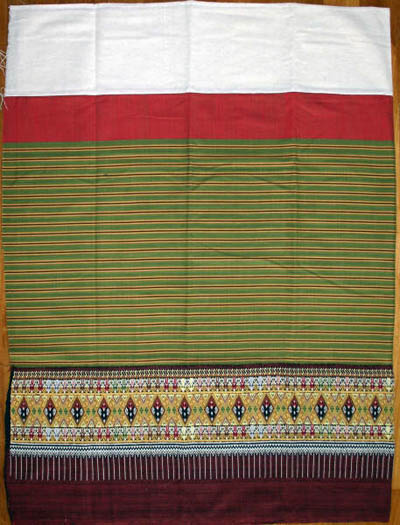‖n. pl. [ NL., from Gr. &unr_;, a nettle. ] A group of Cœlenterata, including the Medusæ or jellyfishes, and hydroids; -- so called from the stinging power they possess. Sometimes called
‖n. pl. [ NL., from Gr. &unr_; a spine, thorn + &unr_; head. ] (Zool.) A group of intestinal worms, having the proboscis armed with recurved spines. [ 1913 Webster ]
a. (Zool.) Having a spiny head, as one of the Acanthocephala. [ 1913 Webster ]
n. [ Gr. &unr_;;
‖n. pl. [ NL., fr. Gr. &unr_;, adj. neut. pl., headless. See Acephal. ] (Zool.) That division of the Mollusca which includes the bivalve shells, like the clams and oysters; -- so called because they have no evident head. Formerly the group included the Tunicata, Brachiopoda, and sometimes the Bryozoa. See Mollusca. [ 1913 Webster ]
n. Same as Acephal. [ 1913 Webster ]
a. (Zool.) Belonging to the Acephala. [ 1913 Webster ]
‖n. pl. [ LL., pl. of acephalus. See Acephal. ]
n. One who acknowledges no head or superior. Dr. Gauden. [ 1913 Webster ]
n. [ Gr.
a. Pertaining to, or resembling, the acephalocysts. [ 1913 Webster ]
a. [ See Acephal. ] [ 1913 Webster ]
A false or acephalous structure of sentence. De Quincey. [ 1913 Webster ]
a. [ Gr. &unr_; highest + &unr_;. See Cephalic. ] Characterized by a high skull. [ 1913 Webster ]
n.
n. Loftiness of skull. [ 1913 Webster ]
n.
n. (Med.) An antidote against poison; a counterpoison. [ archaic ] [ 1913 Webster + AS ]
a. [ Gr. &unr_;, &unr_;, oil, fat. ] (Org. Chem.) Of, pertaining to, or derived from, fat; fatty; -- applied to compounds having an open-chain structure. The aliphatic compounds thus include not only the fatty acids and other derivatives of the paraffin hydrocarbons, but also unsaturated compounds, as the ethylene and acetylene series. Compare
n. [ Gr.
n. [ L. alpha, Gr.
In am Alpha and Omega, the beginning and the end, the first and the last. Rev. xxii. 13. [ 1913 Webster ]
Formerly used also denote the
☞ In cataloguing stars, the brightest star of a constellation in designated by Alpha (α); as, α Lyræ. [ 1913 Webster ]
n. [ L. alphabetum, fr. Gr. &unr_; + &unr_;, the first two Greek letters; Heb. āleph and beth: cf. F. alphabet. ]
The very alphabet of our law. Macaulay. [ 1913 Webster ]
Deaf and dumb alphabet.
v. t. To designate by the letters of the alphabet; to arrange alphabetically. [ R. ] [ 1913 Webster ]
n. A learner of the alphabet; an abecedarian. Abp. Sancroft. [ 1913 Webster ]
adv. In an alphabetic manner; in the customary order of the letters. [ 1913 Webster ]
n. The science of representing spoken sounds by letters. [ 1913 Webster ]
n. The expression of spoken sounds by an alphabet. Encyc. Brit. [ 1913 Webster ]
v. t.
adj.
n.
. (Photog.) A sensitized paper for obtaining positives by artificial light. It is coated with gelatin containing silver bromide and chloride. [ Eng. ] [ Webster 1913 Suppl. ]
. (Physics & Chem.) a particle emitted at high velocity from certain radioactive substances. It is identical to the helium nucleus, consisting of two protons and two neutrons. Rays of such particles are called alpha rays. [ Webster 1913 Suppl. +PJC ]
. (Physics & Chem.) Rays of relatively low penetrating power emitted by radium and other radioactive substances, and shown to consist of positively charged alpha particles (helium nuclei) having enormous velocities but small masses. They are slightly deflected by a strong magnetic or electric field. Compare
n.;
n.
n.
adj.
a. [ Gr.
‖n. pl. [ NL., fr. Gr.
a. Anthropophagous. [ 1913 Webster ]
n. [ Gr. &unr_; angel + &unr_; to appear. ] The actual appearance of an angel to man. [ 1913 Webster ]
a. [ Gr.
‖n. pl. [ NL. See Anthropomorphism. ] (Zool.) The manlike, or anthropoid, apes. [ 1913 Webster ]
‖n. pl. [ L., fr. Gr. &unr_; eating men;
n. One who east human flesh. [ Ludicrous ] Shak. [ 1913 Webster ]

